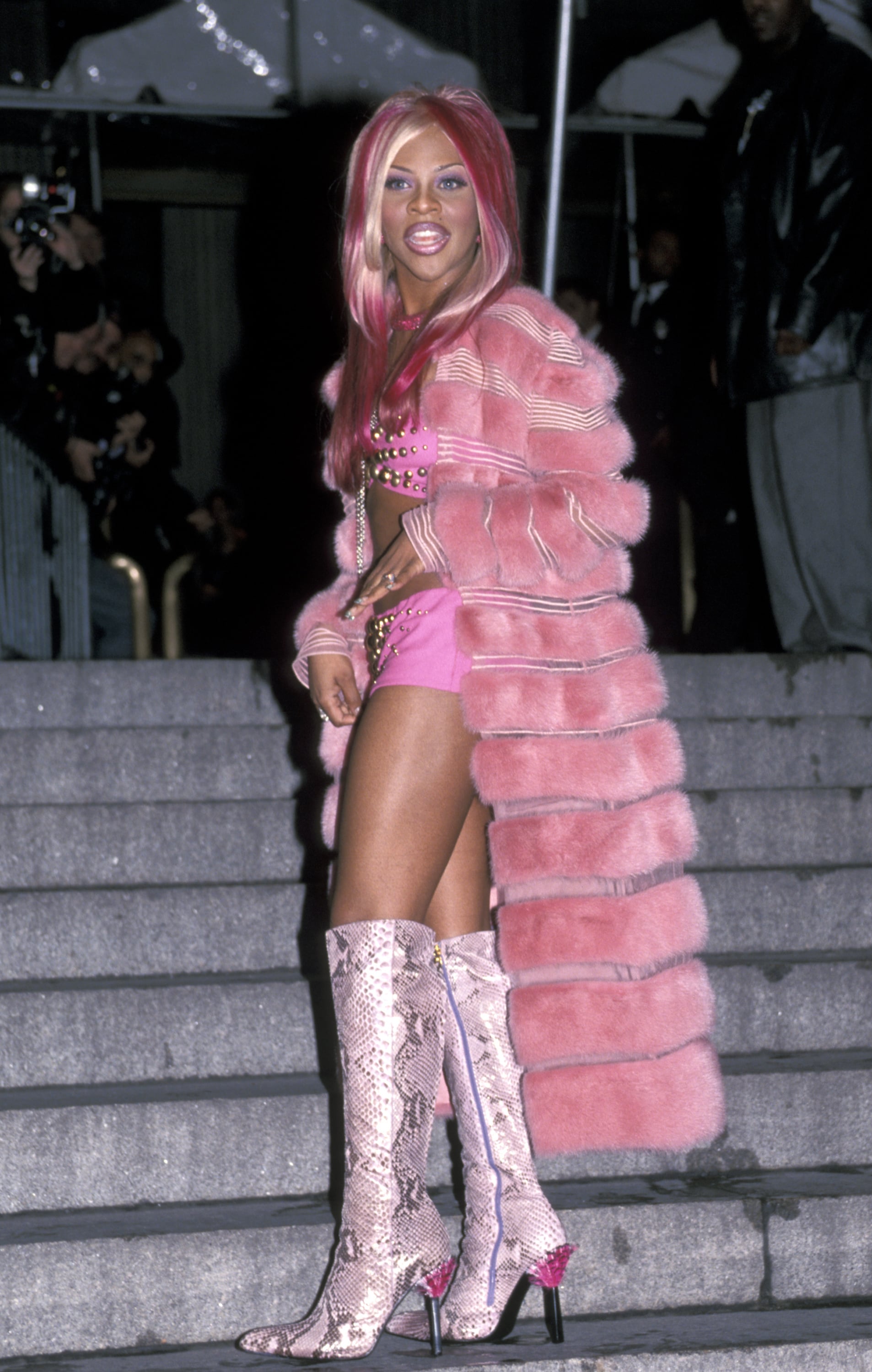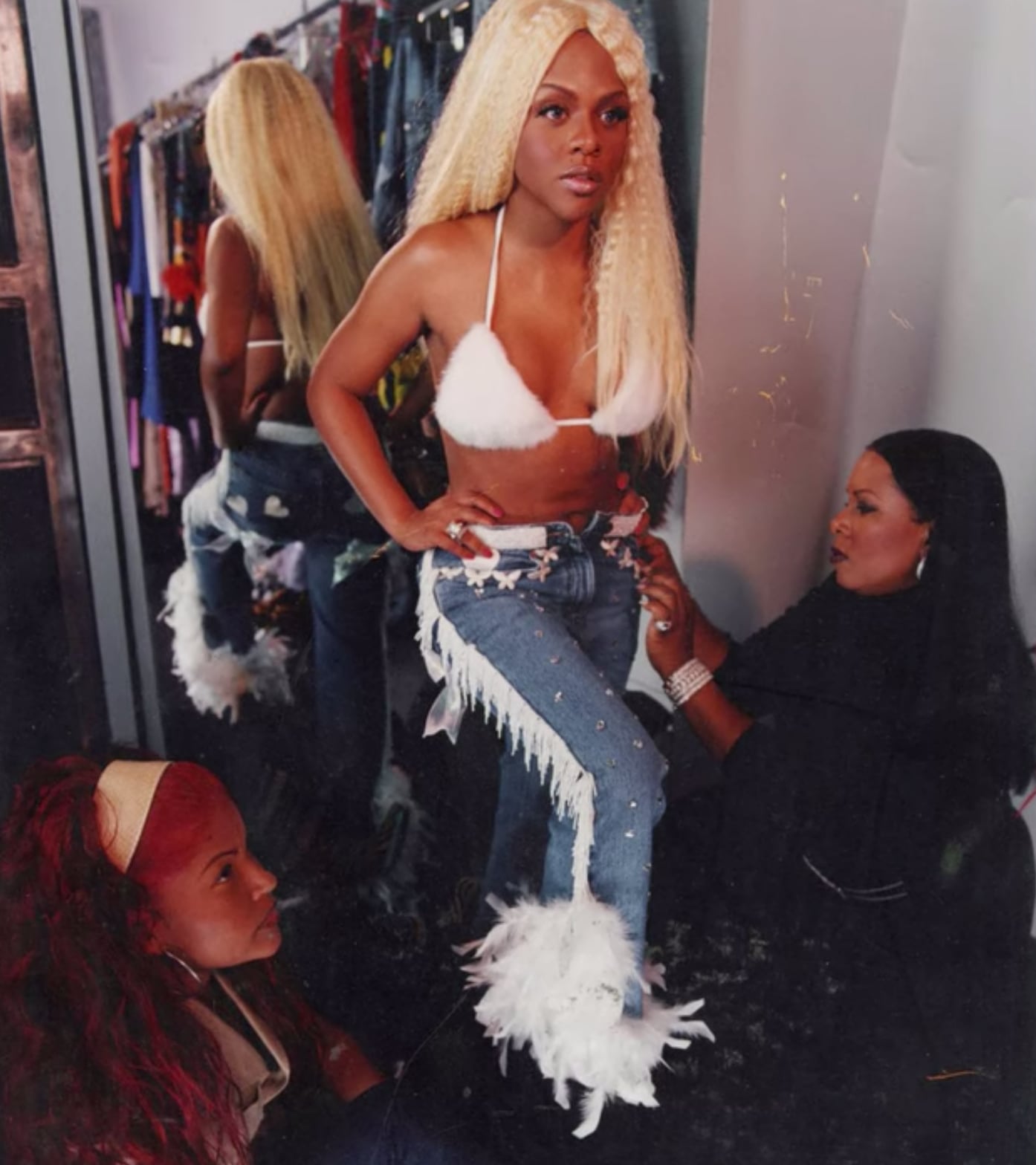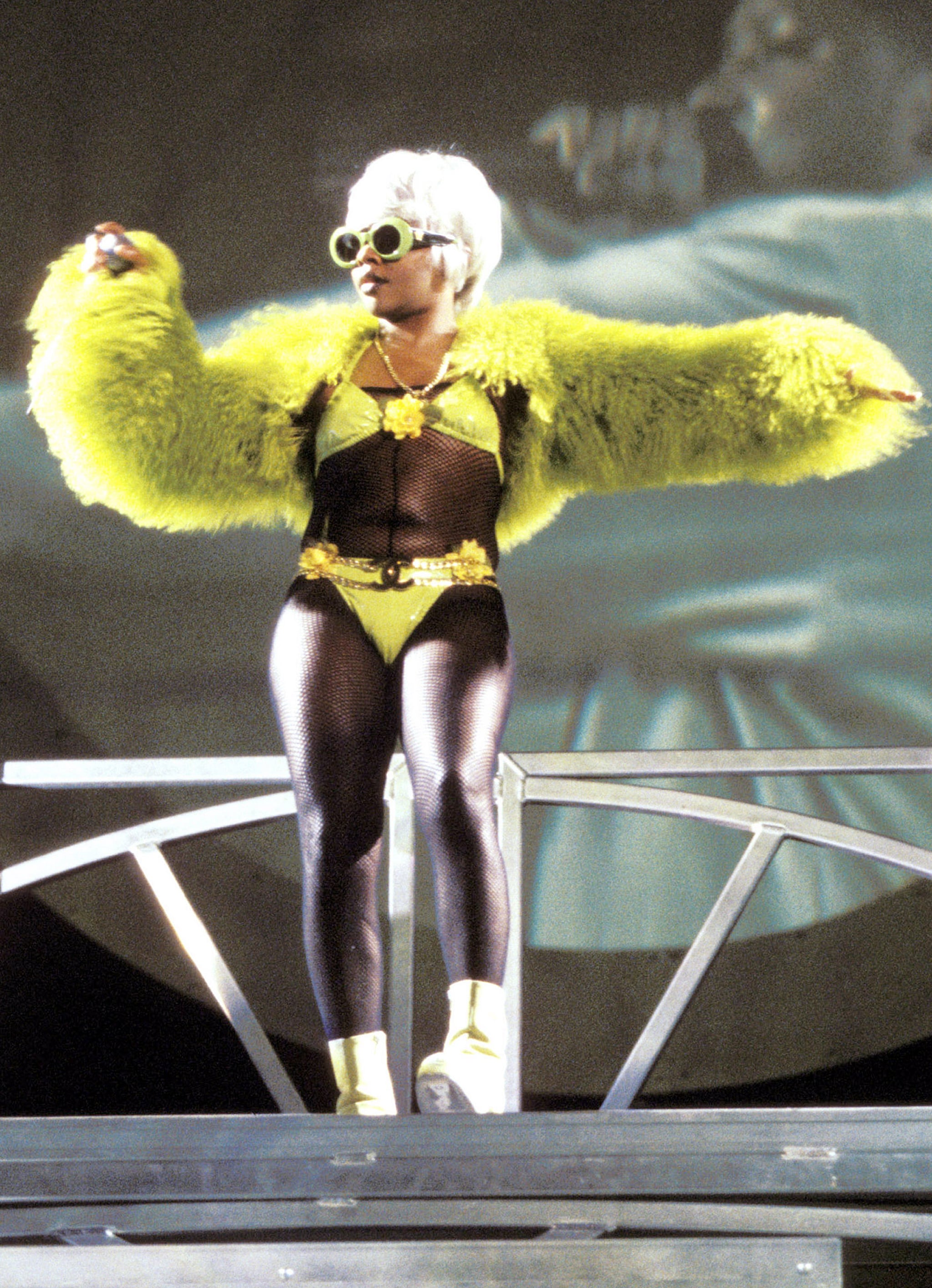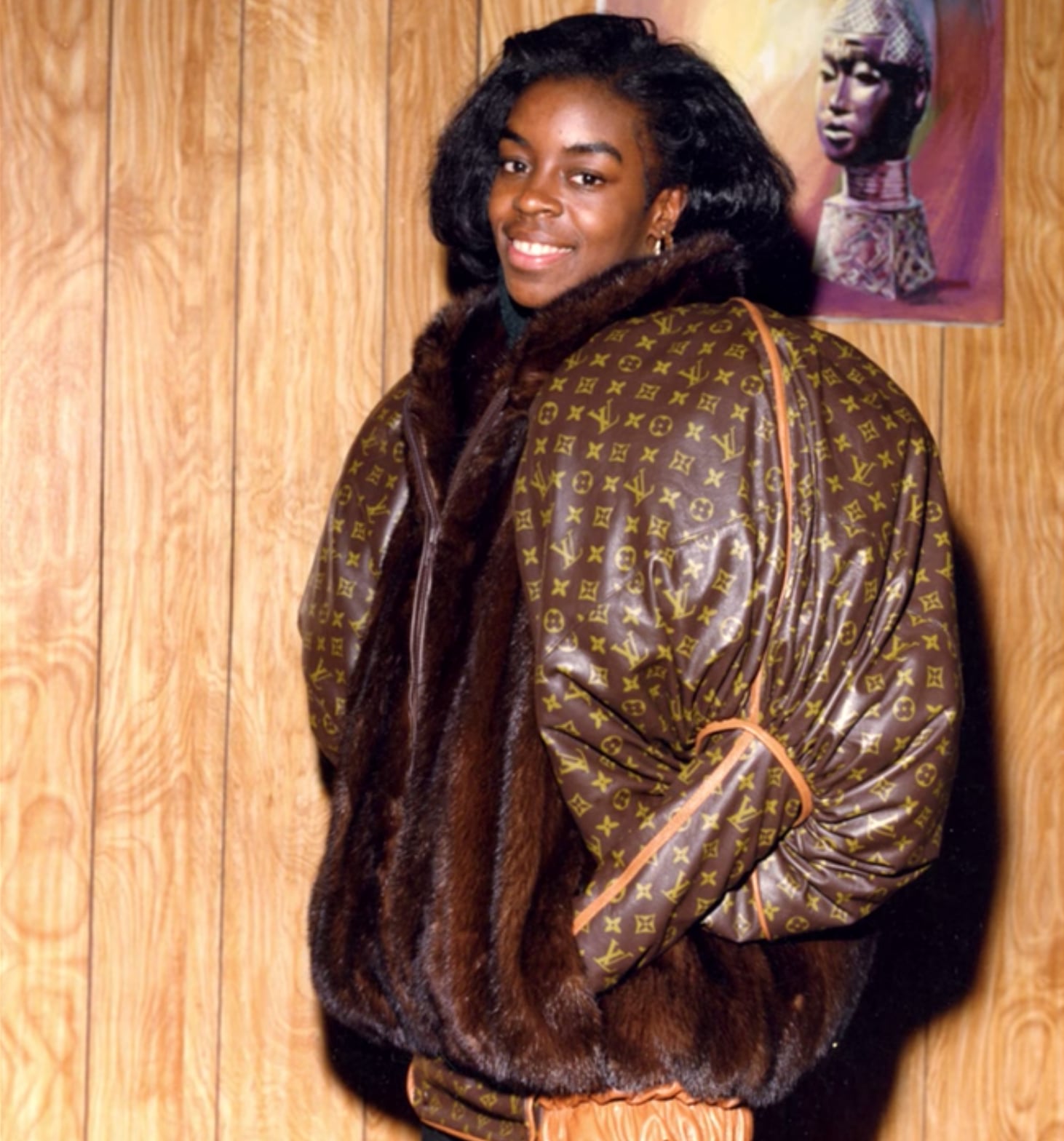 Image: Getty
Image: Getty
Before watching The Remix: Hip Hop x Fashion, I didn't realise the extent to which Black culture shapes the fashion industry. I knew about logomania [1] and Lil' Kim's purple pasty outfit from the VMAs in 1999 — but I didn't understand how stylists Misa Hylton and Dapper Dan created a '90s subculture now used by the likes of Kylie Jenner, Megan Thee Stallion, Cardi B, and countless luxury brands to represent what is hot, young, and cool.
The Remix: Hip Hop x Fashion introduces us to some of the women behind hip-hop's most influential style moments. Historians, stylists, designers, publishers, and editors from the US, London, and Milan explore how the '90s "ghetto fabulous" aesthetic continues to transform contemporary culture — especially when it comes to social media, nostalgia, and cultural appropriation.
"I grew up naïve thinking that most of these rappers that I was looking up to dressed themselves," says Pyer Moss designer Kirby Jean-Raymond in the documentary. "Then I found out that it was Misa Hylton behind these iconic looks, and when you find the people behind it, it makes the story that much more special."
"Fashion for African American people is something we take pride in. It's a way to express ourselves that is just so natural. The way that we do our hair. The way that we get dressed every day. The fashion that we gravitate to is so interesting, and it's different," Misa Hylton says in The Remix: Hip Hop x Fashion. "It inspired me as a child, but I could never have imagined how powerful what I created as a stylist would become and how it has gone so far out. It has gone around the world and come back." Hylton's clients included Lil' Kim, Missy Elliot, and Mary J. Blige, to name a few. She is credited for taking traditionally masculine elements of hip-hop and reinterpreting them to create the feminine, sensual female rapper aesthetic that defines pop culture imagery today.
 Image: Misa Hylton and Lil' Kim from The Remix: Hip Hop x Fashion
Image: Misa Hylton and Lil' Kim from The Remix: Hip Hop x Fashion
"Misa Hylton came along, and she really upped the ante. She took traditional fashion looks, and the style, and the spirit, and she gave it that Black edge," explains former fashion and beauty advertising director of Vibe Magazine, Bevy Smith, in the documentary. The magazine's former editor-in-chief Mimi Valdes also praised Misa for creating "some of the most amazing looks in hip-hop. People need to know her name."
"Starting in the early '90s, It was actually a real turning point in the way that fashion was utilised in the world of hip-hop," says stylist and vintage clothing dealer Gabriel Held in The Remix: Hip Hop x Fashion. Before the '90s, both women and men in hip-hop had to portray a masculine persona to be taken seriously. Elena Moreno, author of Free Stylin': How Hip Hop Changed the Fashion Industry, explained in the documentary that "women would have to hide their femininity. Even wearing pink would be considered a sign of weakness."
 Image: Getty
Image: Getty
Hip-hop was extremely restrictive in how people could express sexual and gender fluidity, which is why Hylton's new take on the female rapper was so revolutionary. She used fashion and style to deconstruct how gender and sexuality was expressed in the world of hip-hop. Where Hylton introduced new archetypes for women to exist powerfully in a male-dominated industry, Dapper Dan reconstructed and manipulated fabrics from luxury labels to subvert ideas of class and success in Black communities. Hip-hop historian Michael Holman explains at length in The Remix: Hip Hop x Fashion the process of deconstruction and subversion in the creation of iconic Black imagery, and how cultural appropriation by both Black culture and the white establishment work in a kind of symbiosis to accelerate and erase the influence of the Black experience.
"Hip-hop has a love affair with luxury brands because it symbolises the fact you've made it," says Nikki Ogunnaike, style director at Elle.com. Bevy Smith adds that "it didn't necessarily have to be about a label — it was about a lifestyle; you could be wearing a tennis outfit and you've never played tennis, or a pair of jodhpurs and you've never rode a horse."
 Image: Diane Dixon wears custom Dapper Dan jacket in The Remix: Hip Hop x Fashion
Image: Diane Dixon wears custom Dapper Dan jacket in The Remix: Hip Hop x Fashion
Dapper Dan understood very early on the effect that the "luxury lifestyle" could have on boosting morale in Black working class communities. "I knew growing up poor, holes in my shoes, how transformative being able to dress could mean. No matter where you live, if you have a beautiful outfit, and you put it on, and you go downtown, no one's better than you," he shares in the documentary.
"One day a customer came in and they had a Louis Vuitton pouch — everyone knew this guy was a big hustler, and they were admiring that pouch. Then I thought to myself that if they were that excited over that pouch, imagine how excited they would be if I could make them complete outfits just like that pouch." And that's how the logomania aesthetic was born in '90s New York City.
 Image: Dapper Dan in The Remix: Hip Hop x Fashion
Image: Dapper Dan in The Remix: Hip Hop x Fashion
"These logo names and luxury goods often come to stand in for political and personal freedom that they're not about," explains Rhonda Garelick, professor at Parsons and critic at The Cut, in The Remix: Hip Hop x Fashion. "They're about exclusion, and reappropriating them can feel liberating, but even more liberating is to ironise them, like Dapper Dan has done."
The Remix: Hip Hop x Fashion is an essential watch for anyone who truly loves fashion, style, and personal expression. The documentary shows the history of how stylists Misa Hylton and Dapper Dan created one of the most influential aesthetics in fashion history, which continues to be reappropriated by luxury brands, who previously left these image pioneers out of the conversation. Heritage houses like Fendi, Gucci, and Yves Saint Laurent are just a couple that capitalise off of the "ghetto fabulous" aesthetic now, which was once excluded from being acknowledged by the fashion elite in the '90s and early 2000s.
The legacies of Hylton and Dan can be seen in a multitude of fashion imagery today, most notably when Dapper Dan's custom puff-sleeve Louis Vuitton jacket pictured above inspired a very similar "homage" jacket for Gucci's Cruise 2018 collection. Dapper Dan also created a custom Fendi monochrome logo-print jumpsuit in the '90s that was recently remade by the brand for its Autumn/Winter 2018 collection. Hylton is best known for the purple pastie look she styled Lil' Kim in for the '99 VMAs, and this look has been replicated by everyone from Yves Saint Laurent, to Miley Cyrus [2], Nicki Minaj, Lady Gaga [3], Rihanna [4], and Cher. To truly understand how and why the fashion industry came to be what it is today, enjoy the stories of some of the most prolific behind-the-scenes image makers in The Remix: Hip Hop x Fashion, streaming now on Netflix [5].